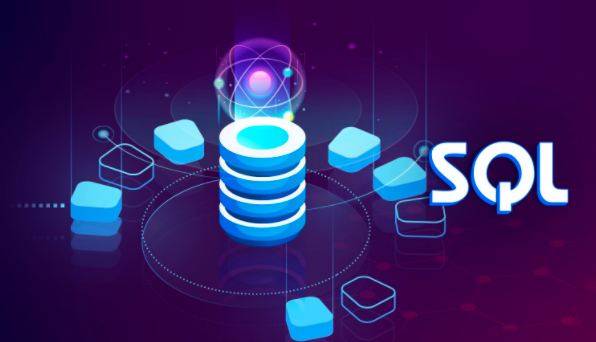Today, being a data analyst and data scientist are some of the most lucrative and high-paying jobs globally.
Thousands of professionals are taking up additional courses intending to redirect their careers.
While some data analysis and management can be done using tools like Excel and Tableau, you need a strong foundation in Structured Query Language (SQL) to become a successful data scientist. Enrolling in relevant Courses in Data Science can further enhance your skills and knowledge in this dynamic field.
It is used in managing and querying data in relational database management systems.
Learning advanced SQL should be your first step if you are looking for a more lucrative career path.
This article is SQL 101 and everything you need to know to become a data expert and kick start your career.
How Lucrative Is The Career Of A Data Scientist Or Data Analyst?
Even though the data analytics and data science fields are relatively new, both offer workers competitive pay.
In fact, according to Indeed, most data scientists and analysts with three or fewer years of experience earn an annual salary between $60,000 and $85,000 per year.
If you have five or more years of experience in the field, your salary can range between $85,000 and $120,000 per year.
If you want to take your data career further, consider becoming a data engineer.
Data engineers often work part-time or as consultants for companies that do not have their own data analytics professionals on staff.
As a result, they usually earn even more than what data analysts or data scientists get.
Keep reading if this has given you some boost to know more about this new age career path.
Data Analytics: An Introduction To SQL
You could only analyze data using tools like Excel or Tableau in the past.
Nowadays, however, you can do a lot more with SQL, coupled with R and Python.
Many organizations are moving away from traditional analytics tools toward SQL-based systems because they are much easier to use.
This makes learning SQL a crucial step in advancing your data career.
If you want to get started, you can enroll in different institutions that offer SQL introductory courses.
This will help you have a basic understanding of what SQL is and its basic uses. After that, you can improve your skills by taking advanced SQl courses.
Become A Data Analyst: The Importance Of SQL
Data analysts need to know how to query their data. This means they will need to write effective queries to retrieve the information they require for projects and reports.
Without a strong SQL foundation, you will not be able to become a data analyst, let alone excel in your career.
However, by learning SQL, you are well on your way to beginning a career in data analytics.
What Will You Learn From Advanced SQL Training?
The best way to learn SQL is by attending an advanced training course.
An instructor will teach you the real-world applications of writing queries that give meaningful results.
For example, you might be tasked with retrieving a group of records using criteria such as customer ID numbers, names, or email addresses.
An SQL training course will teach you how to write a query using these criteria and the best practices for querying your data.
In addition to teaching about writing queries, an advanced SQL training course will also show you hacks, tips, and tricks.
These can assist you to become a more effective analyst or data scientist. You will learn how to use SQL’s subqueries, work with nested queries, and even manipulate strings.
How Will You Benefit From Advanced SQL Training?
There are a lot of benefits to taking advanced SQL training.
You will learn how to write an effective query in less time because the course will teach you the best way to write questions and provide tips and tricks that can help speed up your work.
In addition to learning how to write faster queries, you will also understand how to write more practical questions.
You will see exactly what your query is doing so that you can troubleshoot issues much faster, which ensures less time spent trying to fix data problems.
In addition to the speed and analytical benefits, advanced SQL training courses also help you become indispensable as an employee.
For instance, many organizations are increasingly relying more on SQL.
It has become essential for the employees to effectively manipulate data using Tableau tools.
If you want to become a successful analyst or data scientist, then start by learning the foundations of SQL.
Advanced SQL Training: Where To Find It?
Now that you know how robust SQL is, it is time to learn more about advanced SQL training.
Many advanced training courses will teach you how to write effective queries and provide tips and tricks for writing faster questions.
To receive the most out of your studies, you need to have a strong foundation in SQL.
With this in mind, you need to know how to write basic queries and how to handle subqueries and nested queries.
These questions are essential for giving the best results for your data.
Learning advanced SQL training is crucial to becoming an influential analyst or data scientist.
This course teaches you all about writing efficient queries and various tips and tricks to make you more effective.
In addition, advanced training courses also show you how to manipulate strings and work with unique data types.
If an advanced SQL course appeals to you, then opt for leading institutes that offer online classes which you can do at your own pace.
By signing up for a class, you can learn real-world skills needed for practical learning.
Conclusion
There are many benefits to taking up SQL courses. In addition to becoming a better analyst or data scientist, you will also learn an assortment of tips and tricks that will make you more efficient in your role.
In addition to learning about how to analyze data with SQL, you can also learn more about risk management and other data management topics.
These courses are designed to help you succeed in your data career.
We hope you have found this article useful. So, take a step toward a brand new career path today!







